Papaya, the tropical fruit with bright orange flesh, is more than just a tasty treat. This amazing fruit is packed with nutrients that can boost your health in many ways. From helping your digestion to fighting disease, papaya deserves its spot in the superfood hall of fame.
1. Rich in Immune-Boosting Vitamin C
Just one cup of papaya delivers more than 150% of the vitamin C you need daily! This powerful nutrient helps your body fight off colds and infections by strengthening your immune system’s defenses.
Your body uses vitamin C to heal cuts and scrapes faster too. Think of it as your body’s repair kit, always ready to fix damaged tissues. Many people don’t know that papaya actually contains more vitamin C than oranges.
During cold and flu season, adding papaya to your breakfast might be just what the doctor ordered to keep those sniffles away. The vitamin C in papaya also helps your body absorb iron from other foods, making it especially helpful if you’re feeling tired.
2. Promotes Digestive Health
Ever had an upset stomach? Papaya might be your new best friend. The special enzyme called papain works like a natural digestive aid, breaking down proteins and making meals easier on your stomach.
The fiber in papaya helps keep things moving through your digestive system, preventing that uncomfortable bloated feeling. About 3 grams of fiber in a medium-sized serving makes this fruit a gut-friendly choice. People in tropical countries have used papaya for centuries as a natural remedy for tummy troubles.
Next time you’re feeling stuffed after a big meal, try a few slices of fresh papaya instead of reaching for an antacid. Your digestive system will thank you!
3. Supports Heart Health
Your heart works non-stop your whole life, so keeping it healthy matters! Papaya’s impressive lineup of vitamins A, C, E, folate, fiber, and potassium creates the perfect team for heart protection.
The potassium in papaya helps control blood pressure by balancing out sodium in your body. Meanwhile, the fiber helps sweep away bad cholesterol before it can clog your arteries. Studies show that people who eat more potassium-rich fruits like papaya tend to have lower blood pressure.
The antioxidants in papaya fight inflammation and oxidative stress, two big troublemakers for heart health. Adding papaya to your diet is like giving your heart a little extra love with each sweet bite.
4. Anti-Inflammatory Properties
When your body hurts, inflammation is often the culprit. Papaya contains natural fighters against inflammation called chymopapain and papain. These enzymes work like tiny firefighters, cooling down the heat of inflammation in your body.
For people with achy joints from arthritis, eating papaya regularly might help reduce morning stiffness and pain. The colorful compounds in papaya called flavonoids and beta-carotene also join the fight against inflammation. Scientists have found that fermented papaya preparation (FPP) might be especially powerful against inflammation.
This makes papaya not just a tasty treat but potentially helpful medicine for conditions where inflammation causes problems, like asthma, skin rashes, and digestive issues.
5. Good for Skin and Hair
Want glowing skin and shiny hair? Papaya might be your new beauty secret! The vitamin C helps your body make collagen, the protein that keeps skin bouncy and young-looking.
That’s why many fancy face masks contain papaya extract. Lycopene in papaya acts like a natural sunscreen from the inside out, helping protect your skin from damaging UV rays. For dry, flaky scalp issues, papaya’s vitamin A content helps keep your scalp healthy and your hair strong.
Mashing up papaya and applying it directly to your skin can work as a gentle exfoliator, removing dead skin cells to reveal brighter skin underneath. Many people notice smoother skin texture after using papaya regularly, either by eating it or applying it topically.
6. May Help Prevent Certain Cancers
The bright orange color of papaya comes from lycopene and beta-carotene, powerful plant compounds that fight oxidative damage in your cells. These compounds act like shields, protecting your DNA from changes that could lead to cancer.
Research suggests that people who eat more lycopene-rich foods like papaya may have lower risks of prostate and breast cancers. The antioxidants in papaya hunt down harmful free radicals before they can damage healthy cells. Fermented papaya preparation has shown promise in lab studies for enhancing the immune system’s ability to identify and destroy abnormal cells.
While no single food can prevent cancer completely, adding papaya to a healthy diet gives your body extra cancer-fighting tools to work with.
7. Aids in Eye Health
Staring at screens all day? Your eyes could use some papaya power! This tropical fruit contains vitamin A and lutein, nutrients that act like internal sunglasses for your eyes, filtering harmful blue light and protecting delicate eye tissues.
Lutein concentrates in the macula of your eye, the part responsible for central vision and fine detail. Regular consumption of lutein-rich foods like papaya has been linked to lower rates of age-related macular degeneration, a leading cause of vision loss in older adults.
Night vision gets a boost from papaya too. The vitamin A helps your eyes adjust between bright and dim lighting, making night driving safer. For computer users, adding papaya to your diet might help reduce eye strain and fatigue after long days of screen time.
8. Helps Maintain Healthy Blood Sugar Levels
Sweet treats that don’t spike blood sugar? Yes please! Despite its sweet taste, papaya has a relatively low glycemic index of around 60, meaning it won’t cause dramatic spikes in blood sugar levels after eating.
The fiber in papaya slows down sugar absorption, creating a gentler rise in blood glucose. This makes papaya a smarter choice for people watching their blood sugar or managing type 2 diabetes compared to higher-glycemic fruits. Some studies suggest that the antioxidants in papaya might even help improve insulin sensitivity over time.
Green (unripe) papaya has an even lower glycemic impact than the fully ripened fruit, making it an excellent option for blood sugar management. Adding a sprinkle of cinnamon to papaya can further help stabilize blood sugar levels.
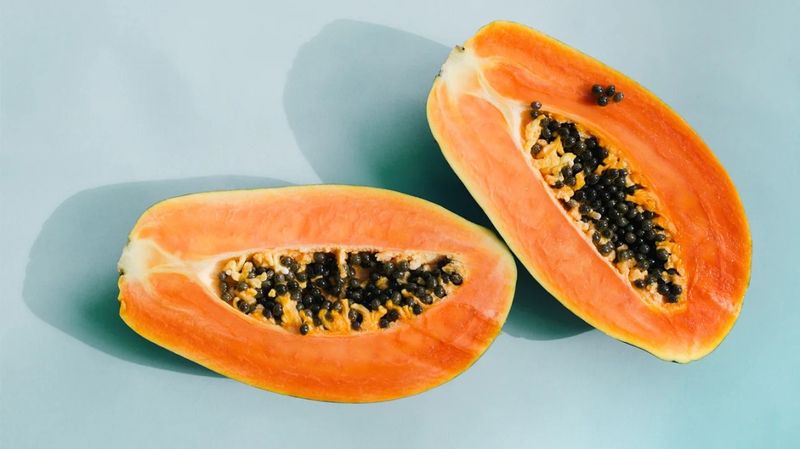
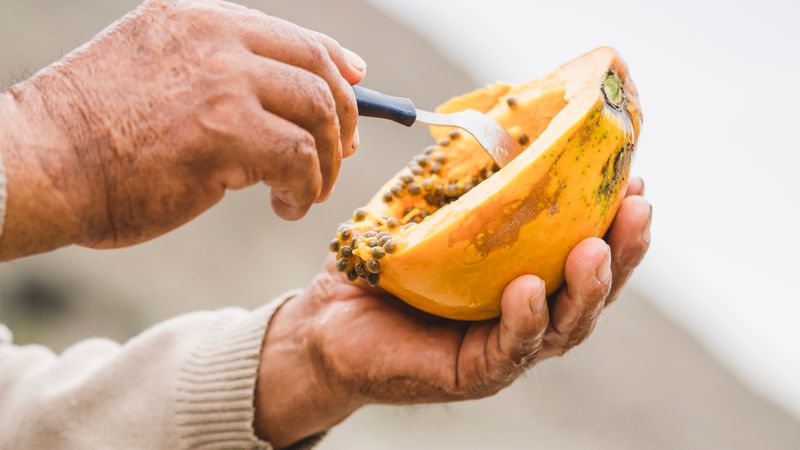
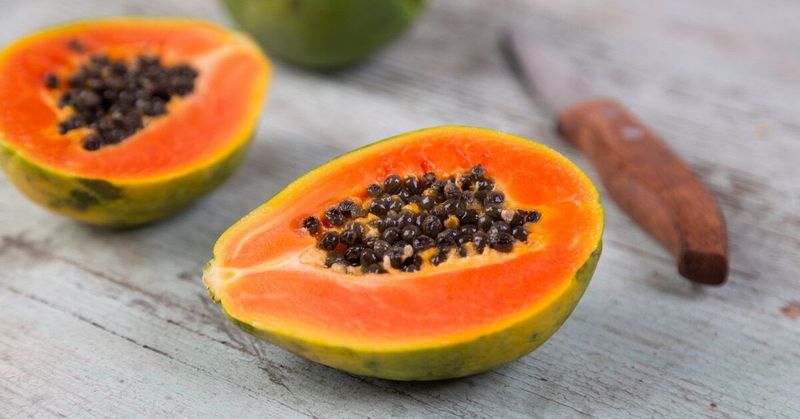
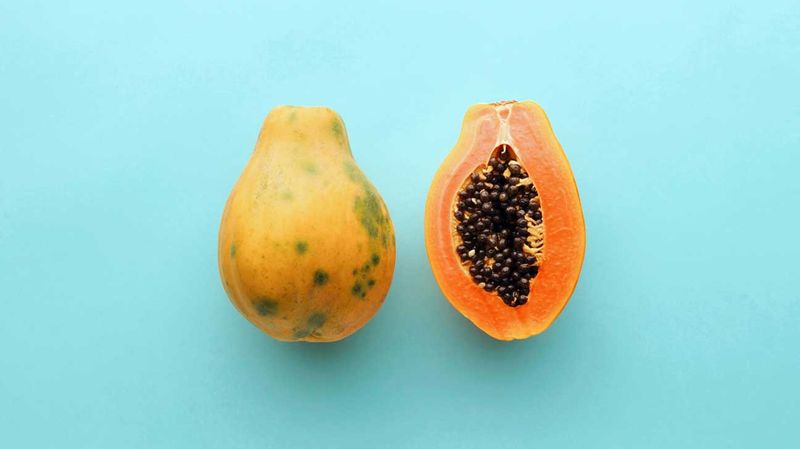

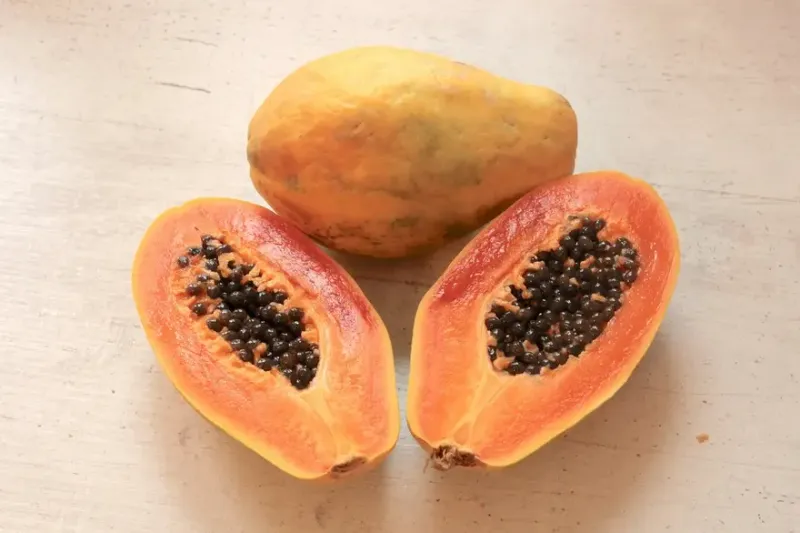
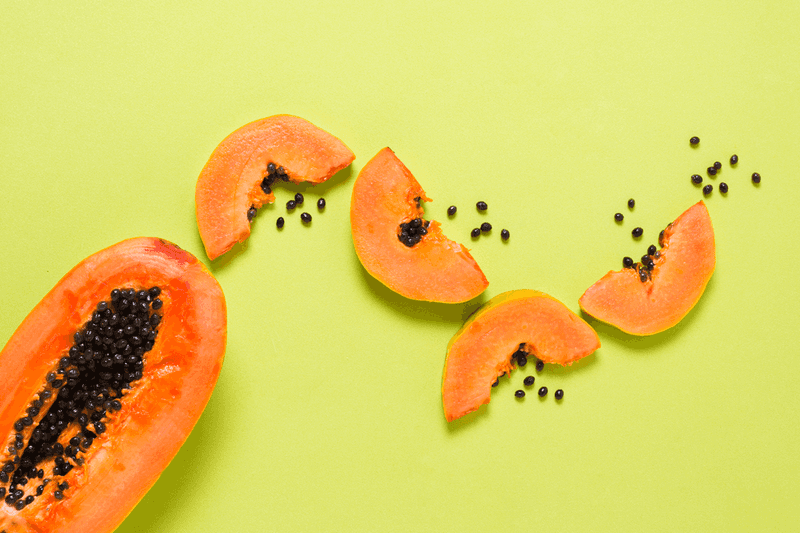
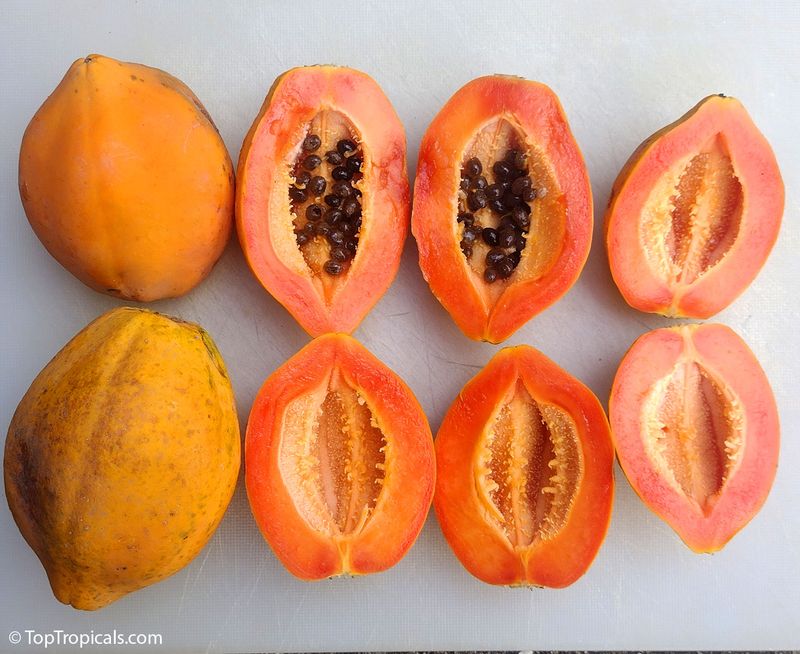
Leave a comment